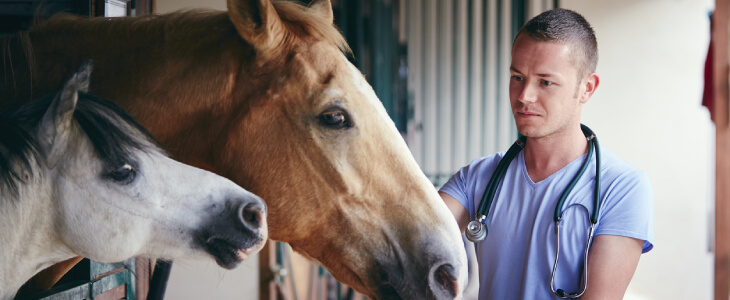Regardless of the reason for a horse purchase, one thing is for sure: a horse is a major investment. Therefore, when selling a horse, sellers are required to disclose certain information. This serves to protect both the seller and buyer. In this article, we discuss equine health disclosures in horse sales.
Equine Health Disclosure Requirements
A horse seller must pass along certain relevant information to potential buyers, much of which is health-related. However, sellers aren’t required to disclose every known fact about a transaction. For example, a seller doesn’t commit fraud by remaining silent about certain aspects of a horse sale. Most courts have held that silence generally doesn’t amount to fraud, especially when a defect with an animal could be readily discovered through a routine inspection. However, a seller’s failure to disclose information may amount to fraud under the following circumstances:
- If the horse seller agrees in the purchase agreement to disclose all facts relevant to the transaction, then the seller must disclose these facts to avoid committing fraud. In this situation, silence doesn’t serve as a defense against fraud.
- If the buyer and seller have a fiduciary or confidential relationship, then the seller must disclose all relevant facts.
- If the seller knows that the buyer is mistaken regarding certain facts, then the seller is required to correct the buyer’s mistaken belief. For example, if the potential purchaser of a mare tells the seller that he or she intends to breed the mare in the next year, but the seller knows that the mare is unable to carry a foal due to a health condition that is not readily discernible from a veterinary examination, then the seller must correct the buyer’s mistaken belief to avoid committing fraud.
- If a horse seller knows that a potential purchaser intends to use the horse for a particular purpose, then the buyer is required to disclose all facts relevant to whether the animal is capable of meeting that purpose. For example, if a buyer intends to purchase a horse for a child to ride at horse shows, but the seller knows that the animal has dangerous propensities, then the seller must disclose this fact to the buyer.
- When the potential purchaser asks the seller a question, the seller is obligated to give a truthful response. If the seller gives a misleading or incorrect response, then this constitutes fraud. For example, if the purchaser asks the seller if the horse has had any medical problems in the past, then the buyer must give a truthful answer.
The Bottom Line
Whether you are a horse buyer or seller, it’s important that you ensure the integrity of the transaction. The best way to do so is to seek the assistance of an experienced equine law attorney. An equine law attorney will take steps to ensure that the proper disclosures are made, and the necessary paperwork is completed for the transaction.
Contact a Wellington Equine Law Lawyer
Gueronniere, P.A., is here to help you with your equine transaction needs. At Gueronniere, P.A., our knowledgeable equine law lawyer will guide you through the sales process, taking steps to ensure that all required disclosures are made. Please contact us today to schedule an initial meeting with our talented Florida equine law lawyer.
